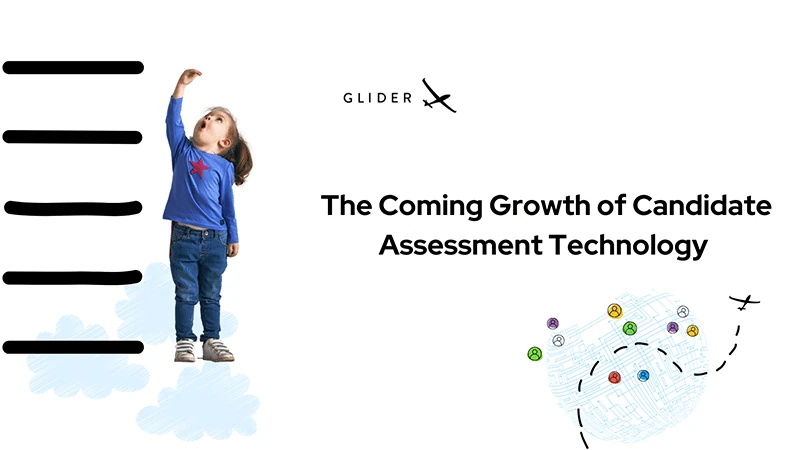‘Quality Talent’ is a top quest for any business enterprise, worldwide. Luckily, advancements in candidate assessment technologies have made the job easier and accurate for recruiters. From skills to personality to attitude, a candidate’s compatibility can be assessed from all perspectives.
Conversely, the Coronavirus pandemic has left many conundrums for the world, including the recruitment market. Fundamentally, the candidate assessment was majorly shifted to the online platform. Combined with AI and Big Data, candidate assessment technology has built a strong digital presence in the recruitment market. Among many things, the technology accelerated the hiring process in high volumes.
Why Do Candidates Cheat?
While it’s not unusual to come across some candidates cheating in pre-hire assessments or testing, recruiters have witnessed a sharp spike in such incidents recently. Remote or virtual recruitments
It’s no surprise that candidates cheat when they fail to get a correct answer or solution. They also impersonate their identity or take external help if they lack communication and behavioral skills.
“A candidate’s potential for deviant behavior or identifying someone who misrepresents themself is a tough one to uncover. Companies and staffing firms that acknowledge the threat of candidate fraud upfront can avoid the associated risk and damage that results from dishonesty.”Archie Payne, President, CalTek Staffing
In his words, recruiters or staffing agencies must look out for the following red flags in candidate assessment:
- Unrealistic or excessive job skills on a resume
- Limited contact information or no mention of social media profiles
- Irrational employment timelines
- Failure to share legal documentation, relating to prior employment or education
- Exaggerated or over confident responses to questions
- Inability to answer situational or behavioral questions
- Inconsistent contact information
- Excuses for incorrect details or information.
What Does the Survey Say?
It is worrisome that cases of candidate fraud or malpractice have escalated in the recent years. The alarming report from Glider Talent Intelligence Survey (in collaboration with SIA) have revealed the following data, collected from approximately 8,000 candidates between 2020 and 2021:
- An increase of 92 percent in fraudulent activities during candidate assessments.
- 21 percent of candidates attempted to cheat in various ways, albeit in a monitored test environment.
- The average interview-to-offer ratio is 25 percent, which means three out of four interviews end with zero hire.
- Exaggerated resumes are one of the prime challenges in IT staffing.
On the other hand, the survey also informed that:
- Enterprises have 2.8 times greater confidence in predicting talent quality among leaders.
- MSPs like Mindlance found the interview-to-hire ratio was 94 percent for candidates who passed Glider’s assessments (the industry average is ~25 percent).
Candidate Assessment Technology to the Rescue
Candidate assessment technology is not new. Yet, it is seeing a skyrocketed growth in recent years, due to pandemics and inevitable consequences. The AI-based technology not only automates high-volume hiring but also assess the candidate end-to-end, from hard skills to personality.
As per Workforce Solutions Buyers Survey, conducted by SIA in 2021, about 40 percent of the recruitment market uses candidate assessment technology. Further, about two-thirds of the current users are expected to delve deeply within the next two years.
According to Matt Erhard, Managing Director, Summit Search Group, a candidate assessment technology strengthens the hiring process through:
- Directly monitoring aptitude tests to verify hard skills
- Background and reference checks (as a part of due diligence)
- Addressing potential red flags in situational interviews
- Maintaining a transparent hiring process
- Enhancement of candidate experience
- Identifying best candidate talent who has a ‘logical fit’ to the position.
Glider’s Candidate Assessment Technology
With a lean assessment process, Glider’s candidate assessment technology validates talent quality like no other. The interactive assessments can be either used as pre-built tests or custom created for unique positions, focusing on the candidate’s quality and fit.
That’s not all. Recruiters can also evaluate candidate quality through advanced features like plagiarism score, proctoring and simulation. Since the candidate’s assessment scores are auto-evaluated with no manual intervention, there is zero bias in candidate hiring process.
Closing Note
In the words of SIA, “Talent quality is a leading indicator of success, yet it remains a lagging indicator.” A potential candidate may have all the exceptional skill sets, be it academic, behavioral and technical, but genuineness plays a major role in becoming a “Good Fit” for the organization. This is where technology-driven candidate assessments play a pivotal role.
The rapid adoption of candidate assessment technology tells us what the future of work will look like. No wonder, many business enterprises concur with it as one of the best advancements in recruitment ecosystem.
2022 has arrived. We certainly hope the year is full of health, happiness and positivity. We are also eager to get you lot of updates on recruitment and staffing industry. Subscribe to Glider’s Newsletter and never miss an update!
Also, you are just a click away from an early access to the latest SIA report!



